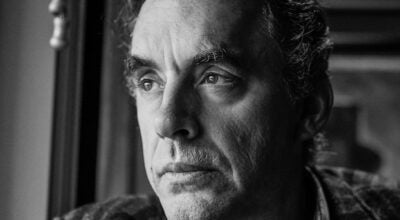A soldier’s story
Published 11:34 am Saturday, July 4, 2015
Howard Byrd was 22, married and working at the paper mill in Bogalusa when he was drafted into the U.S. Army in 1943 during World War II.
This young man, who had not seen much of the world, was about to go abroad to fight for his country and ultimately spend time as a German prisoner of war.
With a fourth-grade education and missing parts of two middle fingers on his left hand from a mill injury, he was still accepted for duty even though he was left-handed.
After minimal basic training at Camp Fannin in Texas and Camp Beauregard in Louisiana, he was sent to New York where he boarded a ship with the 35th Division, 134th Infantry bound for England.
He said as the ship passed the Statue of Liberty, he was asleep, and they woke him up and asked him if he wanted to see it.
“I told them I would see it when I came back,” he said.
He was in England only one day when they crossed the English Channel into France. In July 1944 they arrived by boat on Omaha Beach, about a month after D-Day. They were replacements for the troops that had gone in on that fateful day.
“The beach was a mess,” he said. “There were still bodies and boats all over the place.”
They were mostly on foot as they fought their way in, sometimes riding in a covered truck, but mostly they would walk all day long. Within a couple of days they were in battle.
During a front line battle on Aug. 8, he was wounded when a piece of shrapnel from a mortar shell went through his left cheek and knocked out a jaw tooth. The same shell killed one of his buddies who was standing next to him.
“This left me dazed, and I was picked up and carried in a Jeep to a first aid station, then to a hospital where I waited until the next evening before being seen by a dentist. After so long a time my jaw was in a bad condition. I couldn’t stand for it to be deadened, so the sergeant held me down while the dentist cut the roots of the tooth.
During his time at the infirmary, he was able to help other injured soldiers. Since his injury was to his head, he could walk around unlike many of the others. He assisted the nurses by holding down the arms of the men when they were receiving infusions.
An injured German soldier was also there. According to someone who understood German, he was railing against the Nazis and yelling that they had taken his wife and forced him into the army.
“I went over and caught hold of his hand. I sat there and talked to him, and he calmed down even though I don’t think he understood me.”
He was sent back to active duty on Aug. 31. He rejoined his outfit as they marched further into occupied France. One night he and another soldier were sent ahead on a scouting mission. Walking down what they thought was a deserted street in a small village his good friend just a few feet away was gunned down by a sniper.
His platoon then had an order to move up to the Moselle River.
“As we were almost dug in one night we received new orders to cross the river on a cement bridge. There we suffered several casualties. We were ordered to go over the hill which myself and a very few others did. Then we realized the enemy was behind us and we could not locate the rest of our boys. We began trying to work ourselves back to the river. Our boys opened fire on us not knowing who we were. We hollered to them and fell in a cement ditch.
“One of the boys said, ‘I’m hit!’ We crawled down this cement ditch until we came to a long culvert big enough to stand up in. We went through it not knowing where it led. At the end of the culvert we found our captain and the rest of our boys,” Byrd remembered.
“A short time later an enemy tank came down the road and blasted the bridge out. The rest of the night we fought with enemy foot troops. There were machine guns on boats to keep us from crossing back. About four or five o’clock in the morning more tanks returned.
“We were down beside what seemed to be a dead part of the river, lying side by side behind a mound, which we thought to be a road. There the tanks were shooting point blank at us. Our captain told us we might as well surrender. The enemy then put us in a road and marched us to a town,” he remembered.
They surrendered on Sept. 11, 1944. They were put in boxcars for a journey that lasted six days and seven nights and were given nothing to eat or drink for the entire trip. A hole “the size of a syrup can” in the side of the box car was their sole source of light and air. The only way he obtained water for the week-long trek was by sticking his hand out of the hole and collecting rain in his palm.
“We were in two bombing raids, one in Frankfurt, Germany, lasting about 1 1/2 hours. One of the boys in the boxcar with me became hysterical. He would run up against the boxcar and then fall on the floor. We had to catch him and hold him down. Some of the box cars were broken in from the bombs,” Byrd said.
A few days later, they were in another bombing raid.
When they arrived at the prison camp, Stalag 7A, they had something similar to red clover to eat — like grass. They were then forced to work in an adjoining town, which had been bombed.
“The guards would pass by occasionally asking us, ‘Wouldn’t some bacon and eggs be good?’ Once the guards got mad with some of the boys and on return to camp they lined us up inside the gate for about 2 1/2 hours. The guards would stand and talk to each other. We didn’t know what they were saying or what their plans were.”
After being transferred to a second prison camp, Stalag XIIA, they were sent each day into Munich to work in railroad yards that had been bombed. At night they were fenced in and slept on flat beds.
Then Byrd and several other prisoners went to a farm to work. He said being a country boy farming was something he knew and he volunteered to go.
“I figured my chances were better on a farm,” he said.
He actually worked on two different farms. He said he had to learn a few words of German to get the oxen to plow.
One day a nearby town was bombed and one plane failed to release its bombs on the target. All at once the bombs started falling in a wooded area near where they were working, and a fighter plane on fire crashed on the other side of them.
“We stayed on this last farm until a short time before we were liberated. We were cutting timber one day and learned from a French soldier that this was to be used as a blockade for our tanks. We refused to cut any more, causing them to get very angry, and we received very cruel treatment after that,” he said.
Later, when American troops began to move in, the prisoners were moved to a small town close to the Alps. They were locked in a barn for several days with very little to eat. By this time the weather was very cold, and Byrd said at night he slept in the hay and stuck his feet under the cows for warmth.
“One day a British prisoner on the outside of the barn told us the Americans were about seven miles away.”
“We begin to make plans how we could get back to the front lines. He told us he could help us, providing some of us would go with him. Two volunteered, and late in the evening we slipped them out a side door while the guards were distracted by the firing on the front lines,’” Byrd said.
“The boys reached the front lines safely and got a German truck and came back for us. All that could got on the truck and rode, and the rest of us walked, including a German guard who went with us. About halfway, the German planes came in to fire on us, but the American fighters came in and saved us and shot down the German planes,” he said.
By this time the war was about over.
Byrd said he spent nearly eight months as a German prisoner of war. He added that prisoners of war will do many things to survive, including drinking water from mud holes and eating grass.
On a ship coming back into New York City, he took the time to view the Statue of Liberty. This time he was happy to see this lady.
“The lights were on. The war was over,” he said.
From New York he made it to Hattiesburg, then to Columbia, where he caught a cab to Bogalusa and rode the bus to Sheridan. Unfortunately, nobody knew he was coming and no one was there to greet him!
Now 93, Byrd would not talk about his experiences for a long time. He said they were allowed to send and receive mail while a POW and both he and his wife of 67 years, Donia Sheridan Byrd, kept most of those letters. She died in November 2008.
After he returned home he studied and obtained his high school equivalency diploma, drove a school bus and dairy farmed for awhile then finally went back to work at the mill, from which he retired. Until the past year or so, Byrd has been very active, using his tractor and has only slowed down recently.
“I came out a lot better than some of them did,” he said. “They were praying for us back home. I made it back. A lot of them didn’t. The Good Lord was looking over me.”





